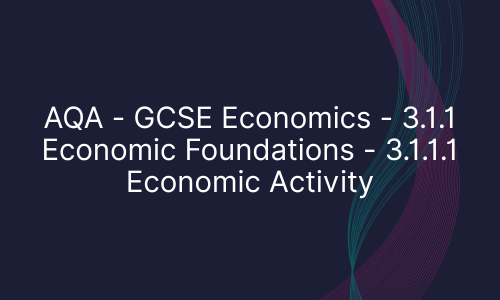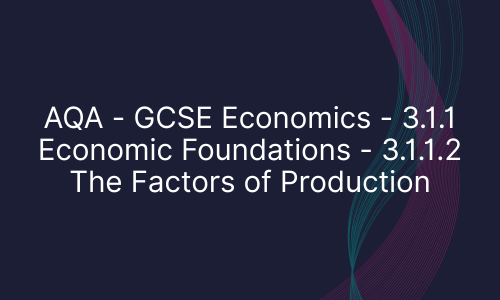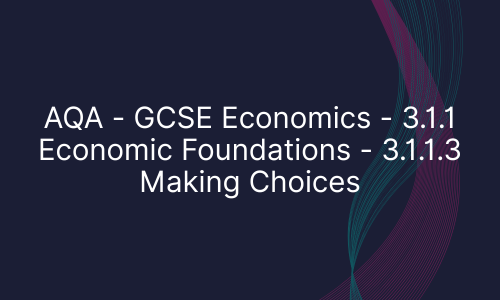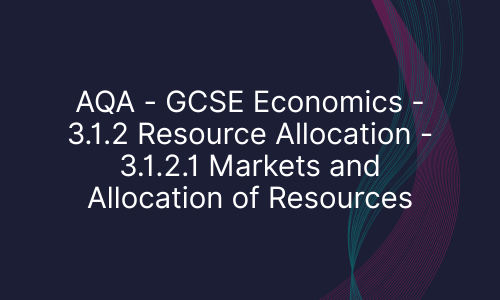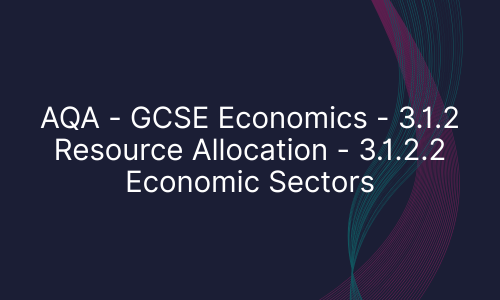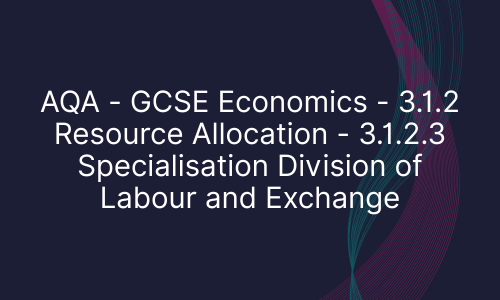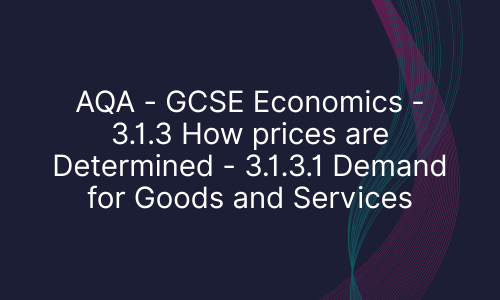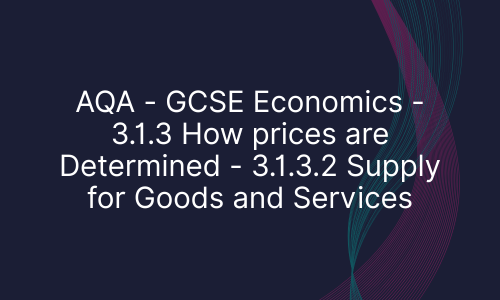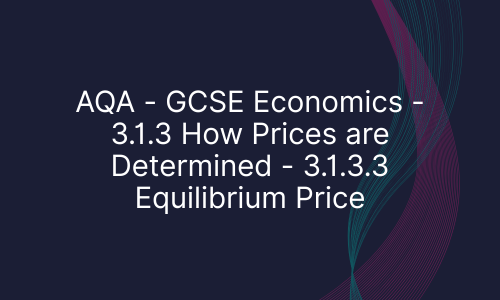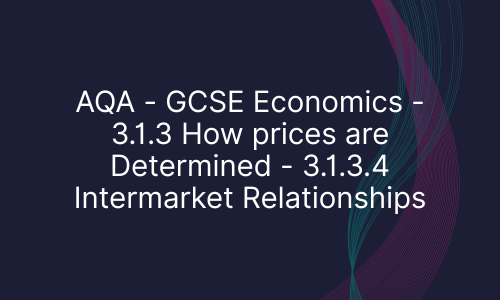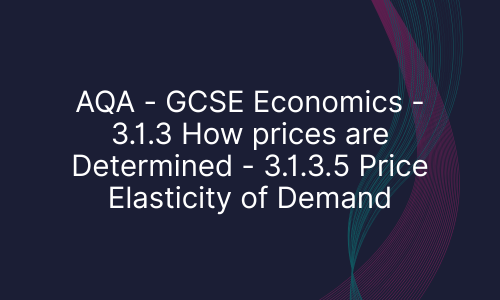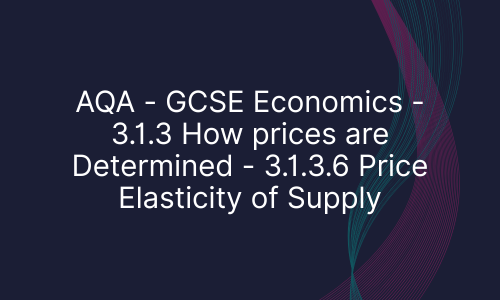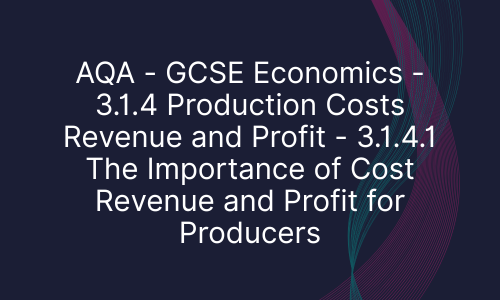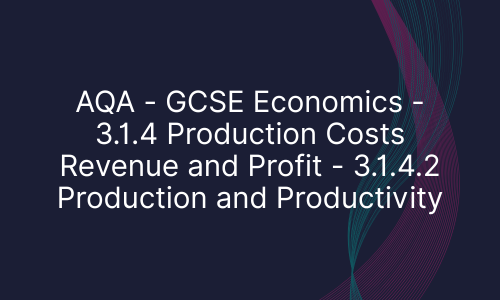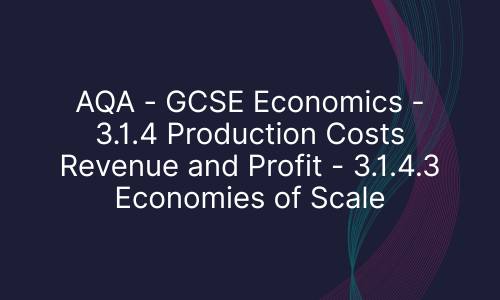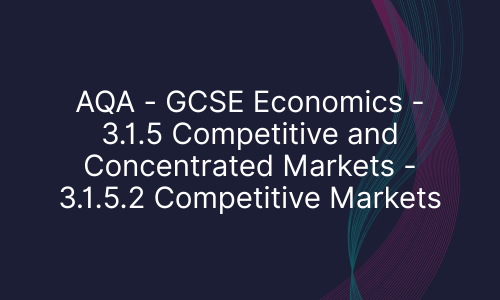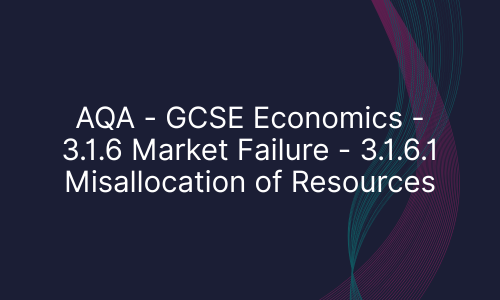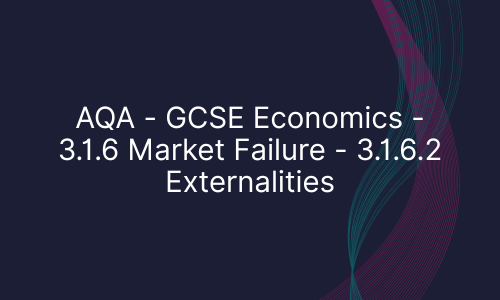AQA GCSE Economics (8136) Syllabus: Your Comprehensive Guide to Economic Understanding
Lessons, Resources & Insights
AQA GCSE Economics (8136) Syllabus: Your Comprehensive Guide to Economic Understanding
Lessons, Resources & Insights
Welcome to the definitive guide for the AQA GCSE Economics (8136) syllabus. This page is meticulously crafted for students, teachers, and parents navigating the exciting world of GCSE Economics. The AQA GCSE Economics qualification offers a robust foundation in economic principles, equipping learners with essential knowledge about how economies function, the challenges they face, and the decisions that shape our financial futures. Enterprise Skills is dedicated to supporting every aspect of your journey through the AQA GCSE Economics (8136) course.
What Makes the AQA GCSE Economics (8136) Qualification Unique?
The AQA GCSE Economics (8136) stands out for its practical relevance and engaging content. Unlike other subjects, AQA GCSE Economics directly addresses real-world issues, from understanding inflation and unemployment to exploring global trade and environmental economics. This specific qualification encourages critical thinking and analytical skills, enabling students to interpret economic data and evaluate government policies. The AQA Economics syllabus is designed to be accessible yet challenging, fostering a deep appreciation for the complexities of economic systems. For anyone seeking a comprehensive GCSE Economics guide, the AQA (8136) specification provides an excellent framework.
Course Structure and Assessment for AQA GCSE Economics
The AQA GCSE Economics (8136) course is structured into two main papers, each assessing different aspects of economic theory and application. Paper 1, “How the economy works”, focuses on microeconomics and macroeconomics within a national context. Paper 2, “How we live and how we live with others”, delves into international economics and the role of financial markets. Both papers for the AQA GCSE Economics (8136) qualification are externally assessed through written exams, featuring a mix of multiple-choice, short-answer, and extended-response questions. This assessment structure ensures a thorough understanding of the AQA Economics syllabus content and the ability to apply economic concepts to diverse scenarios.
Skills Developed and Future Pathways with GCSE Economics
Studying AQA GCSE Economics (8136) develops a wide array of transferable skills highly valued in further education and the workplace. Students will enhance their analytical capabilities, data interpretation, problem-solving, and communication skills. A strong grade in GCSE Economics opens doors to A-Level Economics, Business Studies, or Politics, and provides an excellent foundation for university degrees in Economics, Finance, Business Management, and Law. Furthermore, the understanding gained from the AQA GCSE Economics (8136) course is invaluable for careers in banking, finance, journalism, public policy, and international relations. This GCSE Economics guide emphasizes the long-term benefits of mastering this subject.
At Enterprise Skills, we are committed to providing unparalleled support for the AQA GCSE Economics (8136) syllabus. Our resources, including interactive lessons, practice questions, and detailed explanations, are specifically tailored to the AQA Economics specification. Whether you are a student aiming for top grades, a teacher seeking engaging classroom materials, or a parent supporting your child\’s learning, Enterprise Skills offers everything you need to succeed in AQA GCSE Economics. Explore our platform today to unlock your full potential in this crucial subject.
Exploring the AQA GCSE Economics Syllabus: A Guide for Students and Teachers
The AQA GCSE Economics syllabus provides a fascinating introduction to the economic principles that shape our daily lives. From understanding how markets work to analysing the government’s role in managing the economy, this course equips students with essential knowledge and analytical skills. Our resources are tailored to bring the AQA specification to life, making complex concepts accessible and engaging.
How Markets Work: The Foundations of Economics
The course begins by exploring the fundamental concepts of economics, including needs, wants, and the basic economic problem of scarcity. Students will learn how the forces of supply and demand interact to determine prices and allocate resources in a market economy. This section also delves into the concepts of production, productivity, and economies of scale, providing a solid foundation for understanding how businesses operate in a competitive environment. Our guides and interactive tools help to illustrate these core principles with practical, real-world examples.
How the Economy Works: A Macroeconomic Perspective
Building on these microeconomic foundations, the syllabus then shifts to a macroeconomic perspective. Students will investigate the key objectives of government economic policy, such as controlling inflation, reducing unemployment, and promoting economic growth. They will learn how to use and interpret economic data, including measures of inflation and economic growth, to assess the health of the economy. This section also explores the role of the government and the financial sector in the economy, providing a comprehensive overview of the UK’s economic landscape.
Preparing for Success in Your Exams
The AQA GCSE Economics qualification is assessed through two written papers, which test students’ knowledge, understanding, and ability to apply economic concepts to a variety of contexts. To help students prepare effectively, we offer a range of revision materials, including practice questions, exam-style case studies, and guidance on how to structure answers to achieve top marks. Our resources are designed to build confidence and ensure students are fully prepared for the challenges of the examination.
Developing Skills for the Future
Studying GCSE Economics helps students to develop a unique set of skills. They learn to think critically, analyze data, and construct logical arguments. These skills are not only valuable for further study in economics, business, and related fields but are also highly sought after by employers. By engaging with the AQA GCSE Economics syllabus, students are not just preparing for an exam; they are developing a deeper understanding of the world and their place within it. Our resources are here to support that journey, making economics a subject that is not only understandable but also inspiring.

